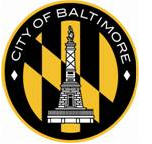Mayor Highlights Reforms to Help Reduce Tax Credit Errors in Baltimore City
Monday Oct 7th, 2013

FOR IMMEDIATE RELEASE
BALTIMORE, Md. (October 7, 2013)—Today, Mayor Stephanie Rawlings-Blake and senior leadership of the administration’s finance department outlined a series of reforms the department has instituted to help reduce Historic and Enterprise Zone Tax Credit errors in Baltimore City. The City Council is currently preparing to consider resolutions calling for the privatization of tax collections and an audit of the City’s tax programs.
“I am pleased to highlight a series of positive steps my administration has undertaken to help reduce Historic and Enterprise Zone Tax Credit errors in Baltimore City. The errors have frustrated tax credit recipients and have caused them to lose confidence in government’s ability to do one of its most basic functions,” said Mayor Rawlings-Blake. “I share those frustrations and realize how upsetting these errors can be. At its core this is an issue of fairness—fairness to people who have done the right thing but are paying the price for an inefficient and poorly coordinated system. This administration has worked diligently to proactively identify errors and overtime. We have put in place mechanisms to crack down on mistakes. I believe the reforms we are highlighting today will go a long way toward building the public’s confidence in our ability to provide correct tax bills.”
At the direction of the mayor, the Finance Department created the Billing Integrity Unit and has effectively taken control of the tax calculation function from the State of Maryland. In addition, the administration has instituted an internal review of all tax credit accounts to identify errors. Based on the findings from the review, the administration has developed new protocols for calculating the credits, which will reduce human error and automate the process, which has traditionally been manual. These efforts will ensure that tax bills are accurate. The July 2013 bills were the first to be calculated by the City’s Finance Department since taking over the calculation function. The Finance Department believes those bills were distributed free of errors. It expects that the new automated system will be fully functioning and available to the public by March of 2014.
“Under the leadership of Mayor Rawlings-Blake, my department has worked diligently to get to the bottom of these costly errors. To that end, we have been proactive in completing internal reviews to determine where breakdowns occurred, resulting in erroneous bills being issued,” said Harry Black, director of the Office of Finance. “Going forward, we will put additional controls in place to further improve the system. It is critical that we give these reforms a chance to work and refrain from any actions that may slow the process down for reform or could inadvertently lead to additional errors.”